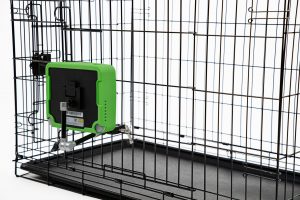Spring came early this year, bringing warmth, flowers, longer days…and ticks. Ticks emerge from winter dormancy earlier in warmer years. Reported cases of tick-borne Lyme disease have increased over the past 25 years and expanded into new geographic regions as the planet warms. And humans aren’t the only ones who can catch Lyme. Our pets, especially dogs, are also at risk.
Getting hard numbers on ticks and where they are spreading isn’t straightforward. About 30,000 cases of Lyme in humans are reported to the Centers for Disease Control and Prevention (CDC) each year, which is only one tenth of what experts estimate the true number of diagnosed cases to be. To build models from incomplete data, public health officials pull from diverse sources: diagnostic laboratories, insurance claims, weather reports. Even infections in dogs can tell us something about infection rates in humans. These aren’t perfect methods, though, and they rely on people actively providing samples or undergoing somewhat invasive tests.
Luckily, there might be another option for detecting ticks. A cross-disciplinary team led by James O’Neill at the University of Liverpool recently presented a method to use machine learning to predict ticks’ presence from a pet’s health records.
In order to build the method, O’Neill and his coauthors took advantage of the Small Animal Veterinary Surveillance Network, an initiative that has accumulated over 3 million records from veterinary visits in the UK. These records include “clinical narratives” — written descriptions of veterinarians’ observations. These notes are rich with information about pet health. But it isn’t simple for a computer to make sense of them. Human mistakes like misspellings and transcription errors can make normal words incomprehensible to a machine. Medical jargon is also often missing from the dictionaries that language processing tools rely on.
Lire la suite: massivesci.com






